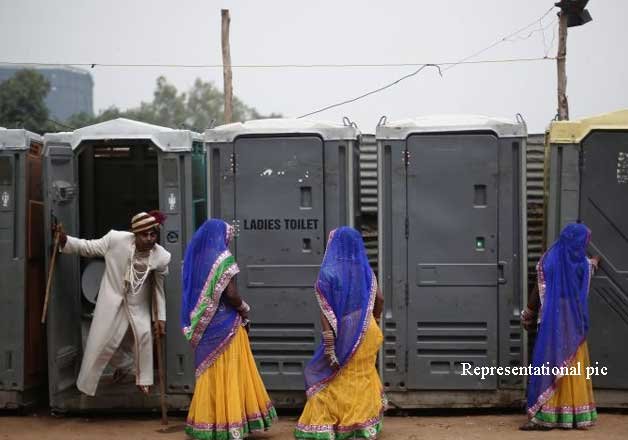Kolkata: West Bengal's Nadia district is poised to complete building toilets for all its residents by next March, under a programme which has been shortlisted for the United Nations global award for public service.
Nadia district magistrate PB Salim said that 95 per cent of the people had already stopped defecating in the open and by this March they would achieve a 100 per cent open defecation-free status.
His scheme "Sobar Souchagar", meaning toilets for all, was launched a year before Prime Minister Narendra Modi kickstarted the 'Swachh Bharat' campaign that is estimated to cost the exchequer over Rs 62,000 crore with a time span of five years to achieve the target of toilets for all.
For the "Sobar Souchagar" programme, no additional funds were allocated by the state government, but available funds from government schemes like 'National Rural Employment Guarantee Act (NREGA), 'Nirmal Bharat Abhiyan' (NBA) and National Rural Livelihood Mission (NRLM) were pooled together to achieve the feat in less than two years.
For constructing toilets, labour cost was borne under NREGA while raw materials for building toilets came from NBA.
The scheme has attracted the notice of the United Nations and has been shortlisted for the UN global award for public service.
Asadur Rahman, state head of the UNICEF, praised the programme, saying Nadia is fast becoming a model for all other states in India.
"We are planning to organise a national level meeting of district magistrates from all over India to showcase this as a model project. This will inspire them in achieving the target of full sanitation," he said.
Out of 5.2 million people in the district, around 35 per cent used to defecate in the open till October, 2013 before the project started.
"Since then we have constructed 2.4 lakh toilets and around 95 per cent people are actually using them," Salim, the district magistrate, said.
Ensuring that rural folks, who have been defecating in the open for generations, use toilets was the biggest challenge as even those having access to toilets preferred to go to open fields.
To change this social behaviour, the administration started a new practise of oath-taking by children in schools that they will ensure total sanitation in their house.
"We did this every Monday at every government school. Over 8.5 lakh children in 4,200 schools have taken this pledge so far. This has proved to be the biggest gamechanger as children went home and forced their parents also to use toilets. That is how we created a demand for toilets," Salim said.
Besides this, they also requested religious leaders to help them spread the message during gatherings.
On Friday prayers in mosques and Sunday mass in churches, using toilets was made one of the agendas.
Each costing Rs 10,000, the double leach pit toilet was constructed by Rural Sanitary Marts, most of which are run by women SHGs.
"We decided not to employ any contractors but gave the task to these 107 existing rural sanitary marts. They were trained to make toilets with funds from NRLM. In this way women became the catalysts for change or ambassadors for toilets," the district magistrate said.
For each toilet, Rs 4,600 came from NBA, Rs 4,500 from NREGA while the remaining Rs 900 were contributed by the beneficiary.
"We took that in kind by asking them to give us their labour in constructing the toilets. Some work as masons, others do the digging work, etc. This way we got community involvement," he said.
The inspiration came from the neighbouring Bangladesh where less than four per cent of people defecate in the open.
"All our neighbouring countries are doing better than us. It was shocking that despite lesser resources, Bangladesh had achieved this," Salim said.
In India, states like Sikkim, Kerala, Himachal Pradesh and Tripura have done well in improving sanitation.

